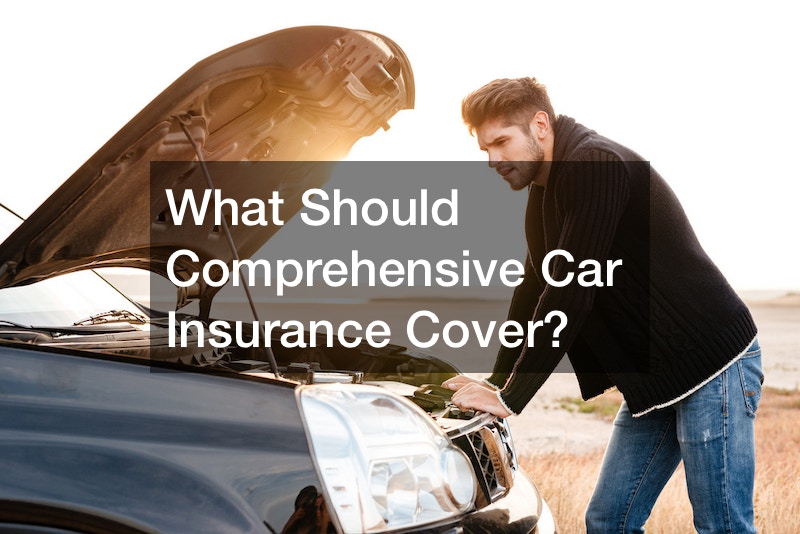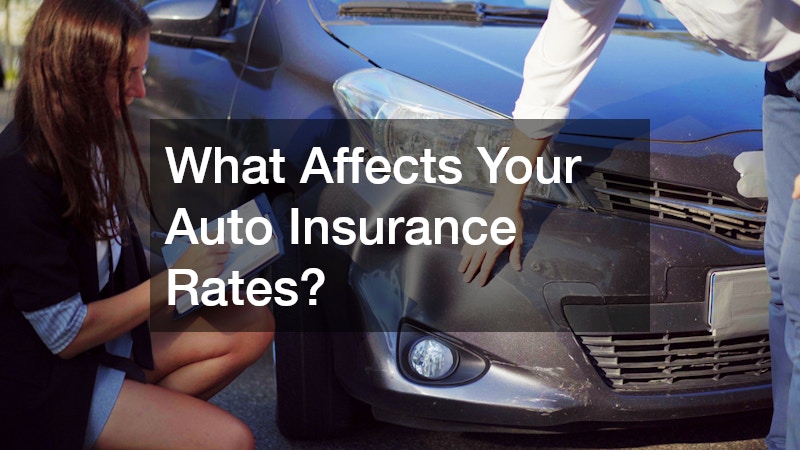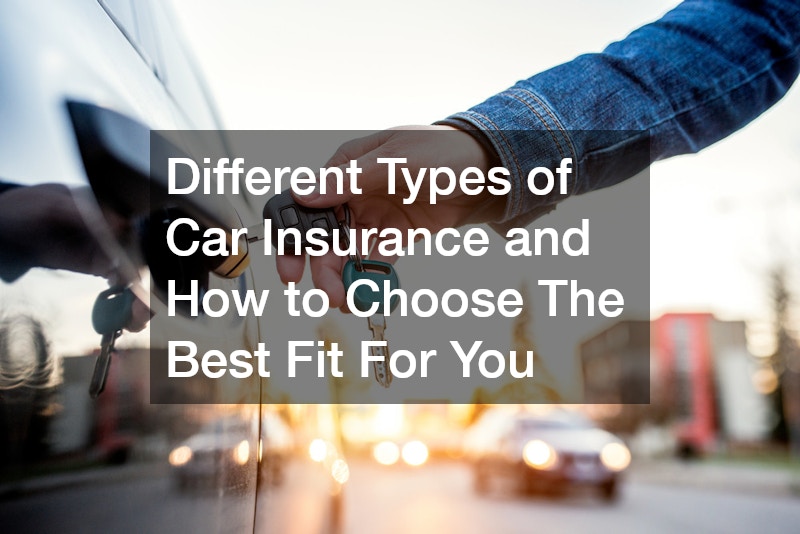
So you’re in the market for car insurance. From all the companies to choose from to the different types of policies to pick, it can be difficult to understand exactly what everything means for coverage and your future in the case of an accident. The goods news is insurance isn’t difficult to understand but rather the vocabulary the industry uses is just a bit different. So, what makes for a good car insurance policy?
Understanding the Breakdown

The first and most important aspect of finding new car insurance coverage is understanding each of the moving pieces behind a policy. Each company will offer different coverages under different categories. For instance, hitting a deer typically is not covered under collision coverage, but it would likely be covered under comprehensive coverage. Seem confusing? No worries keep reading for more explanations below.
The Who’s Who
Before diving into each component of care insurance coverage you may be wondering which company to go with. Generally speaking, it’s never a good idea to just get a quote from one place. Instead, you’ll want to shop around the major companies and see which company offers the best rate for comparable coverage. It’s also worth keeping in mind that your buddy down the road may have XYZ insurance company, but that doesn’t mean they’ll offer you the best rate in town either. Rates can vary according to zip code, the car you drive, your educational background, your driving record, and much much more. So, be sure to get quotes from several of the big companies. But, before getting a quote make sure you understand what each coverage option entails.
Comprehensive Coverage
Of all the different components that go into car insurance, comprehensive can oftentimes be difficult to understand. In layman’s terms, comprehensive coverage will cover your vehicle in the case of damage not caused by another driver. Say for instance you are driving down the road and suddenly a deer pops up from the forest and runs into the street. In the unfortunate circumstance that you are not able to stop in time, you hit the deer causing damage to the front of your car. In this case, this would be considered an accident not caused by another driver. Therefore your typical auto collision coverage would not apply.
Instead, a comprehensive coverage policy would kick into effect and provide coverage to your vehicle. While the deer example is the most obvious case of comprehensive coverage kicking in, there are also several other scenarios where this form of coverage can be beneficial.
Comprehensive Coverage Scenarios
Aside from hitting a deer or other animal, comprehensive coverage will also cover your car and everyone inside of it in many other cases as well. If your car is stolen your policy will likely reimburse you for the cost of the car and any possessions you had inside of it. However, it’s important to keep in mind you must always lock your doors and use reasonable judgment when parking your car and leaving personal items in plain view regardless if you have coverage or not. Comprehensive coverage would also cover your car in the case of severe weather. If you’re parked somewhere and a hail storm, lightning storm, hurricane, or other weather event passes through then you’d be covered. That coverage can also extend to falling objects whether or not they were caused by weather. Let’s say you park under some trees at your local park and later come back to find a branch has crushed in your roof, you’d be covered.
Comprehensive also covers less common, but still risky variables like fires, riots, floods, and general car vandalism as well. While that may seem rather straightforward, some policies also have stipulations on where the car is located as well.
Does it matter where I park?
Although your car may spend the most amount of time simply parked at your home, you still need to ensure that your comprehensive coverage includes protection away from home. One of the most common comprehensive coverage claims way from home is vehicle thefts from parking lots. The good news is, whether you left your keys in the car on a hot or cold day, or if you locked up, comprehensive insurance should cover you in either scenario. It’s important to keep in mind, however, your amount of compensation may vary depending on whether or not your car is recovered. For instance, if your car is stolen from a parking lot and later found a block down the road without any damage, it is possible your insurance company may not pay anything out since no notable damage has been done. This is because insurance companies only promise to pay out if the condition of your property is worse than it was before the accident or event. So even though someone stole the vehicle, as long as there’s no damage, then there’s no reason to pay out. The only exception would be if the vehicle cannot be located for a day or more, then depending on your coverage you may get reimbursed or paid out for a rental vehicle.
Keys where they don’t belong
Another more common comprehensive claim is when your car gets ‘keyed’ or someone purposefully damages the exterior of your vehicle often with another pair of keys. Comprehensive coverage will cover the cost to replace your car parts in their original condition. So if you have a blue car, comprehensive insurance would not only cover a new side panel that was damaged, but also the labor and costs associated with making sure the new part is painted the same color.
What about animals?
As mentioned earlier, hitting animals like deer would be covered under your comprehensive plan. This extends to all forms of related damage from animals beyond just hitting deer. If you swerve because a bird was on the road that would be covered too. If a mouse chews its way into your car to stay warm for the winter that would also be covered. In the event your vehicle is so badly damaged that it’s deemed a total loss, most comprehensive policies will offer cash for cars.
What about glass?

Glass is often a bit trickier because some insurance companies will offer glass protection and replacement for a small additional fee while others will include it in normal comprehensive coverage. Glass most commonly refers to the windshield of your vehicle and is perhaps the most vulnerable part of your car. In most circumstances as long as the accident or event is a typically covered condition then your policy should also cover it. This includes hitting something that breaks the glass, or other weather-related events like hail or even flying debris from extreme winds like tornados. The nice thing about getting the glass replaced is that most auto glass services will come to wherever the car already is and replace the glass at the location. This will also include if you run over a glass or other sharp objects, then your comprehensive coverage will cover that as well by replacing your tries or providing other auto glass repairs.
What if I need a tow?
One thing that is not covered by comprehensive coverage is towing. Even if an event occurred like a branch fell on your car and smashed in the windshield, your comprehensive policy would not include towing. Instead, that service is typically offered as an additional add-on under roadside assistance or towing labor. This is because technically speaking, towing is not the repair of your property but is a form of transportation and therefore would not fall under comprehensive or collision.
Standard wear and tear
On the topic of what’s not covered, a phrase called standard wear and tear is rarely protected with comprehensive policies. This is because insurance exists to protect you in the case of the unexpected. Meanwhile getting new brake parts for example is expected and normal in the course of owning a car. Most non-accident repairs are not covered under your comprehensive policy unless it was directly caused by an accident or event under your policy. For example, if you are driving down the highway on a hot summer day and your radiator stops working causing your vehicle to overheat, that likely is not covered. Why? The regular maintenance of your vehicle is your responsibility and is considered a standard part of owning and operating a car.
What about my trailer?
Comprehensive coverage is typically specific to a driver on the policy or the vehicle of coverage. Although a mixed bag, comprehensive generally only pertains to the primary vehicle it was purchased for and not additional equipment that you may be hauling. Instead, you’ll need to purchase a separate comprehensive package or policy for your trailer or whatever else you may be towing. The good news is most companies provide massive discounts for bundling policies and trailers and other pull along typically have smaller premiums compared to cars. So in the case of your trailer tires running flat or some other event, you’ll need to make sure you have separate coverage so your truck shop can get you fixed up. Make sure your trailer tires are checked and adjusted before you go anywhere.
What about a blown transmission?

Other mechanical failures that are a result of a covered event or accident are covered. If you are traveling down the road and something falls onto the road you may be covered. Especially if you accidentally run over something on the road that shouldn’t be there in the first place. If running over that object caused damage to your transmission then it would be covered. However, in some cases like these the insurance company may first investigate what happened. This often takes a few days to several weeks depending on the complexity of the issue and the parties involved. However, with the protection of rental reimbursement, you’ll be covered in a rental for the time being.
What if someone else is driving my car?
A common scenario people often find themselves in is borrowing or lending out a car or even letting someone else drive on a road trip. In these scenarios, your coverage most commonly follows the driver. For example, let’s say you rent a car to take a road trip and decide to decline the rental company’s insurance. Along the way, you run into a pretty bad storm and the rental car gets hail damage. Are you covered? Yes! That’s because comprehensive will not only cover your specific car, but also other vehicles you drive as well. This can be a good thing, but can also be something worth noting if you let others drive your vehicle. For instance, if someone else is driving your car it may be important to make sure they carry adequate comprehensive coverage (even if they are a good driver). That way you can ensure your ride is covered no matter what.
Comprehensive coverage and you
All in all, comprehensive coverage covers quite a few accidents and events that are not your fault and not the fault of another driver. From hitting deer to getting caught in a hail storm, your tires getting slashed, to vandalism and even car theft, comprehensive coverage is almost essential to keeping yourself and your property protected in the long run. However, comprehensive doesn’t cover everything and typically leaves out towing services as well as collision coverage where the accident or event is the fault of either you or someone else who was driving a different vehicle. Even in the case of you driving a different car, your coverage will typically follow you to keep you protected and safe while offering to fix or repair damage and in some cases take cars for cash. Therefore comprehensive auto insurance is a smart choice that everyone should add to their coverage since life is so unpredictable.




